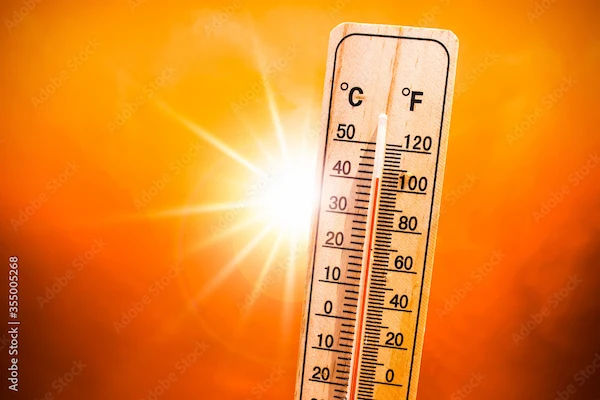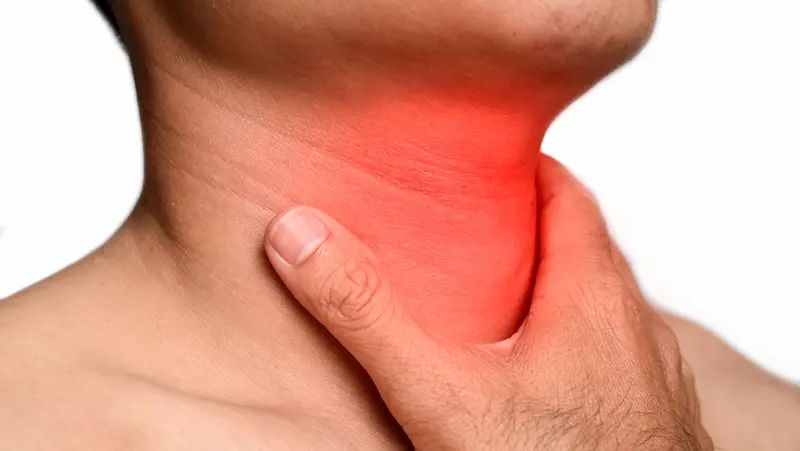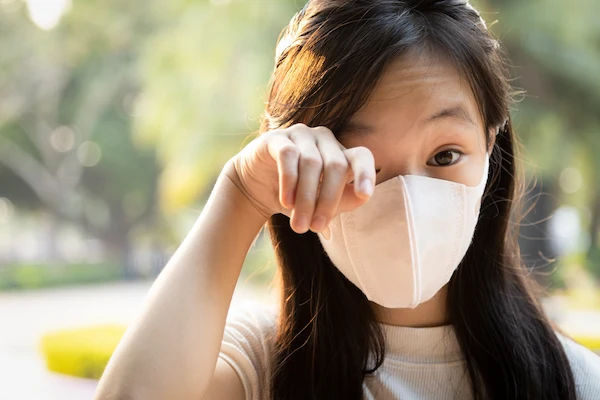Understanding Chemotherapy Prevention And Side Effects
Learn how chemotherapy works, its role in cancer prevention, and ways to manage common side effects. Understand what to expect and how to support recovery during treatment.

Written by Dr. Mohammed Kamran
Reviewed by Dr. Rohinipriyanka Pondugula MBBS
Last updated on 10th Sep, 2025

Facing a chemotherapy regimen can feel overwhelming. The thought of treatment is often intertwined with concerns about its challenging side effects. But knowledge is power. Understanding what to expect and, more importantly, how to proactively manage and even prevent some of these side effects can significantly improve your treatment experience and quality of life. This comprehensive guide is designed to demystify chemotherapy. We'll walk you through how it works, detail the most common side effects, and provide evidence-based strategies—from pre-treatment preparation (prehabilitation) to in-the-moment management techniques—to empower you and your loved ones throughout this journey. Our goal is to shift the narrative from fear to preparedness, arming you with the tools you need to navigate your path to healing.
What is Chemotherapy and How Does It Work?
Chemotherapy is a type of cancer treatment that uses powerful drugs to destroy fast-growing cells in the body, most notably cancer cells. However, because it travels throughout the entire body (systemic treatment), it also affects other healthy cells that multiply quickly, such as those in hair follicles, the mouth, digestive tract, and bone marrow. This fundamental action is the root cause of most chemotherapy side effects.
It's crucial to understand that chemotherapy is not a one-size-fits-all treatment. It can be used with different intentions:
- Curative: To eliminate all cancer cells.
- Control: To shrink tumours and prevent cancer from growing or spreading.
- Palliative: To relieve symptoms caused by cancer, such as pain or pressure, even if a cure isn't possible.
The drugs, dosage, and schedule are meticulously tailored by your oncologist based on your specific type of cancer, its stage, your overall health, and your treatment goals.
Consult Top Cancer Specialists
The Goal of Chemotherapy: Cure, Control, or Comfort
Understanding your treatment's primary goal helps frame the experience. A curative regimen might be more aggressive, with tougher short-term side effects, pursued with a long-term goal. A control or palliative regimen might focus on maintaining a balance between managing the cancer and preserving quality of life. Always discuss the intent of your
cancer treatment with your doctor so you can align your expectations and coping strategies accordingly.
Proactive Prevention
A revolutionary concept in oncology is "prehab" – taking action before treatment starts to build your body's resilience. Think of it as training for a marathon. The stronger you are at the start, the better you can withstand the challenges.
Nutritional Foundations Before Chemo
Good nutrition is your first line of defense. Working with a dietitian can help you build nutrient stores.
- Focus on Protein: Essential for tissue repair and immune function. Include lean meats, eggs, dairy, beans, and lentils.
- Stay Hydrated: Proper hydration helps process the drugs and manage side effects.
- Address Deficiencies: If your bloodwork shows low levels of key nutrients like Vitamin D or iron, addressing them now can help. Apollo24|7 offers convenient home collection for tests like vitamin D or HbA1c, making it easy to check your levels from home.
Physical Activity and Strength Building
Studies show that patients who exercise regularly before and during treatment often experience less severe chemo fatigue and faster recovery. Even moderate activities like daily 30-minute walks, yoga, or light strength training can make a significant difference.
Navigating Common Chemotherapy Side Effects
While side effects vary, some are common. The good news is that modern medicine has vastly improved management strategies.
Fatigue (Cancer-Related Fatigue)
This is the most common side effect, described as an overwhelming and persistent sense of exhaustion that isn't relieved by rest.
- Management: Pace yourself. Prioritise tasks, take short naps, and engage in gentle exercise like walking, which paradoxically boosts energy. Listen to your body and conserve energy for what matters most.
Nausea and Vomiting
Thanks to advanced antiemetic (anti-nausea) drugs, this side effect is much better controlled than in the past.
- Prevention: Your doctor will prescribe medications to take before and after infusion. How to prevent chemo nausea
starts with taking these drugs exactly as prescribed, not waiting until you feel sick. - Management: Eat small, bland meals (crackers, toast, broth). Ginger tea or candies can help. Avoid strong food odors and fatty or spicy foods.
Managing Hair Loss (Alopecia)
Hair loss occurs because chemo targets rapidly dividing hair follicle cells. It can affect all body hair.
- Prevention Strategy: Cold cap therapy can significantly reduce hair loss for some patients. It works by cooling the scalp, reducing blood flow and the amount of chemo drug that reaches hair follicles. Discuss its suitability with your oncologist.
- Coping: Consider cutting your hair short beforehand. Explore wigs, scarves, and turbans. Remember, hair loss is almost
always temporary.
Changes in Blood Cell Counts
Chemo can temporarily lower the production of blood cells from your bone marrow, leading to:
- Preventing Infections with Neutropenia (Low White Blood Cells): This increases infection risk. Wash hands frequently, avoid crowds, practice good food safety, and cook meat thoroughly. Report any fever above 100.4°F (38°C) immediately to your doctor.
- Managing Anaemia (Low Red Blood Cells) and Thrombocytopenia (Low Platelets): Anaemia causes fatigue and shortness of breath; thrombocytopenia causes easy bruising/bleeding. Your care team will monitor counts closely and may recommend treatments like transfusions or growth factor injections if levels drop too low.
Consult Top Cancer Specialists
Addressing Long-Term and Late Side Effects
Some effects can persist after treatment ends or appear months or years later.
Cognitive Changes ("Chemo Brain")
Many patients report mild memory lapses, trouble concentrating, or a "mental fog."
- Management: Use planners, calendars, and reminders. Play brain games, get adequate sleep, and maintain physical
activity. Be patient with yourself and inform your family and employer so they can understand and support you.
Nerve Damage (Peripheral Neuropathy)
This can cause tingling, numbness, burning, or weakness, usually in the hands and feet.
- Management: Report any symptoms early to your oncologist. They may adjust the dosage. Physical therapy can help, and certain medications can manage the pain. Be extra cautious to avoid burns or injuries to numb areas.
Your Support System: Emotional and Mental Well-being
The physical battle is only one part of the journey. Anxiety, depression, and fear are common. Seeking support is a sign of strength, not weakness. Consider:
- Speaking with an oncology therapist or counselor.
- Joining a support group to connect with others who understand.
- Practicing mindfulness, meditation, or gentle yoga.
- Leaning on family and friends—let them help with meals, chores, or simply provide a listening ear. If feelings of sadness
or anxiety become overwhelming, consulting a therapist or a doctor online with Apollo24|7 can provide accessible and immediate support.
Communicating with Your Healthcare Team
You are the most important member of your care team. Keep a symptom diary—note what you feel, when, and its severity. Open, honest communication allows your team to proactively manage side effects. No concern is too small to mention.
Conclusion
Navigating chemotherapy is a profound challenge, but it is one you do not have to face unprepared or alone. By understanding how treatment works, embracing proactive prevention strategies like prehab, and utilizing the extensive toolkit available for managing side effects, you can actively improve your daily experience. Remember, every patient's journey is unique. Your body will respond in its own way, and your care plan will be tailored accordingly. The most powerful tools at your disposal are knowledge, communication, and self-compassion. Arm yourself with information, lean on your support system, and work closely with your medical team. You have the strength to face this, and with the right strategies, you can focus on your healing and recovery. If any new or worsening symptoms cause concern, always reach out to your oncologist promptly for guidance.
Consult Top Cancer Specialists
Consult Top Cancer Specialists

Dr. Gopal Kumar
Head, Neck and Thyroid Cancer Surgeon
15 Years • MBBS, MS , FARHNS ( Seoul, South Korea ), FGOLF ( MSKCC, New York )
Delhi
Apollo Hospitals Indraprastha, Delhi
(25+ Patients)

Dr. Sanchayan Mandal
Medical Oncologist
17 Years • MBBS, DrNB( MEDICAL ONCOLOGY), DNB (RADIOTHERAPY),ECMO. PDCR. ASCO
Kolkata
MCR SUPER SPECIALITY POLY CLINIC & PATHOLOGY, Kolkata

Dr Gowshikk Rajkumar
Oncologist
10 Years • MBBS, DMRT, DNB in Radiation oncology
Bengaluru
Apollo Clinic, JP nagar, Bengaluru
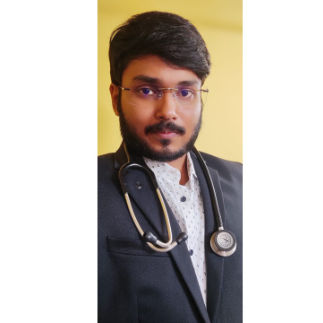
Dr. Rupam Manna
Radiation Specialist Oncologist
7 Years • MBBS MD(RADIO THERAPY), CCEBDM
Barasat
Diab-Eat-Ease, Barasat
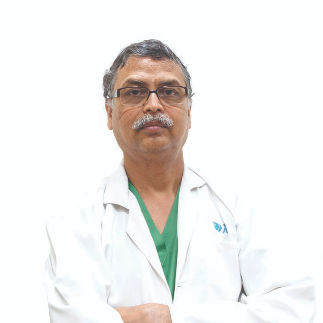
Dr. Praveen Kumar Garg
Surgical Oncologist
26 Years • MBBS, M.S.(Gen.Surg.), M.Ch.(OncoSurg.)
Delhi
Apollo Hospitals Indraprastha, Delhi
(50+ Patients)
Consult Top Cancer Specialists

Dr. Gopal Kumar
Head, Neck and Thyroid Cancer Surgeon
15 Years • MBBS, MS , FARHNS ( Seoul, South Korea ), FGOLF ( MSKCC, New York )
Delhi
Apollo Hospitals Indraprastha, Delhi
(25+ Patients)

Dr. Sanchayan Mandal
Medical Oncologist
17 Years • MBBS, DrNB( MEDICAL ONCOLOGY), DNB (RADIOTHERAPY),ECMO. PDCR. ASCO
Kolkata
MCR SUPER SPECIALITY POLY CLINIC & PATHOLOGY, Kolkata

Dr Gowshikk Rajkumar
Oncologist
10 Years • MBBS, DMRT, DNB in Radiation oncology
Bengaluru
Apollo Clinic, JP nagar, Bengaluru

Dr. Rupam Manna
Radiation Specialist Oncologist
7 Years • MBBS MD(RADIO THERAPY), CCEBDM
Barasat
Diab-Eat-Ease, Barasat

Dr. Praveen Kumar Garg
Surgical Oncologist
26 Years • MBBS, M.S.(Gen.Surg.), M.Ch.(OncoSurg.)
Delhi
Apollo Hospitals Indraprastha, Delhi
(50+ Patients)
Consult Top Cancer Specialists

Dr. Gopal Kumar
Head, Neck and Thyroid Cancer Surgeon
15 Years • MBBS, MS , FARHNS ( Seoul, South Korea ), FGOLF ( MSKCC, New York )
Delhi
Apollo Hospitals Indraprastha, Delhi
(25+ Patients)

Dr. Sanchayan Mandal
Medical Oncologist
17 Years • MBBS, DrNB( MEDICAL ONCOLOGY), DNB (RADIOTHERAPY),ECMO. PDCR. ASCO
Kolkata
MCR SUPER SPECIALITY POLY CLINIC & PATHOLOGY, Kolkata

Dr Gowshikk Rajkumar
Oncologist
10 Years • MBBS, DMRT, DNB in Radiation oncology
Bengaluru
Apollo Clinic, JP nagar, Bengaluru

Dr. Rupam Manna
Radiation Specialist Oncologist
7 Years • MBBS MD(RADIO THERAPY), CCEBDM
Barasat
Diab-Eat-Ease, Barasat

Dr. Praveen Kumar Garg
Surgical Oncologist
26 Years • MBBS, M.S.(Gen.Surg.), M.Ch.(OncoSurg.)
Delhi
Apollo Hospitals Indraprastha, Delhi
(50+ Patients)
More articles from General Medical Consultation
Frequently Asked Questions
1. Can you completely prevent all chemotherapy side effects?
While it's not possible to prevent every side effect entirely, modern pre-medication and management techniques can prevent, minimize, or control the severity of most common side effects like nausea and vomiting, making them much more manageable than in the past.
2. What are the best foods to eat during chemotherapy?
Focus on high-protein, high-calorie foods that are easy to eat and digest. Think lean meats, eggs, Greek yogurt, nut butters, smoothies, soups, and well-cooked vegetables. Small, frequent meals are often better tolerated than three large ones.
3. How long after chemo do side effects last?
It varies. Some side effects, like nausea, fade a few days after each treatment cycle. Others, like fatigue, may linger for weeks or months after treatment ends. Long-term effects are less common but are important to discuss with your doctor during follow-up care.
4. Is hair loss from chemotherapy always permanent?
In the vast majority of cases, no. Hair loss is almost always temporary. Regrowth typically begins 3-6 months after treatment ends, though the colour or texture may be different initially.
5. What is the first sign that chemotherapy is working?
There is no single first sign a patient will feel. Doctors use scans (CT, PET), blood tests (like tumour markers), and physical exams to determine if a tumour is shrinking or stabilising. Some patients may feel a reduction in cancer-related symptoms, but this is not a reliable indicator for everyone.

